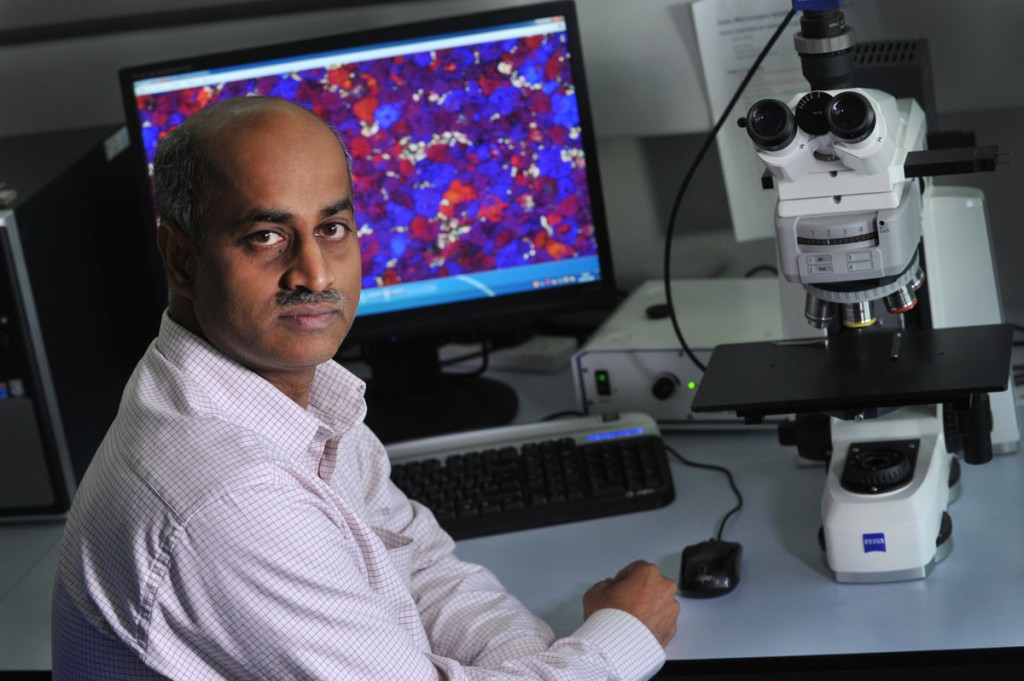
Scientists at Brunel University London have developed the first ever grain refiner master alloy for magnesium-aluminum alloys. A team led by Dr. Hari Babu Nadendla from the Brunel Centres for Advanced Solidification Techniques found a patented niobium-based master alloy that not only filled the missing gap in grain refiners for magnesium alloys but offered significant advantages over titanium in aluminum-silicon alloys.
Dr Nadendla said,
“The Nb-based master ally is shown to be effective in refining aluminum-containing magnesium alloys, which are typically processed using sand or high pressure die casting or direct-chill casting. Our research showed significant improvements in both tensile strength and ductility after using the niobium master alloy. But we were also delighted to discover that that same master alloy showed much greater grain refinement in Al-Si alloys than titanium and these are much more widely used than Mg-Al alloys.
“Mg-Al alloy use is currently nowhere as widespread as Al-Si but this could change quite rapidly as a result of this discovery, especially in aerospace applications. For both alloys we found the niobium grain refiner could mean an end to the over-engineering of cast components with potential weight savings of up to 30 per cent with no loss of strength or ductility. Both in the automotive and aerospace industries weight reduction is a key driver. A particularly pleasing feature is that our new master alloy opens the door to in-factory recycling of excess Al-Si melt.
“At the moment it is generally sent off-site for recycling because of iron contamination making it brittle and so requiring specialist treatment. If the melt is treated with our discovery, excess alloy from a pour or spills and overfills can simply be recycled back into the process.”
Dr. Nadendla’s team has has already trialled the master alloy in factory conditions with melts of up to 6 tonnes. However, the team feels they have barely scraped the surface, as yet, and intend to investigate further in Brunel’s new Advanced Metals Casting Centre, which aims to plug the gap between laboratory discoveries and commercial production. The work was funded by the Engineering and Physical Science Research Council (EPSRC) and Innovate UK.
